
LGBT
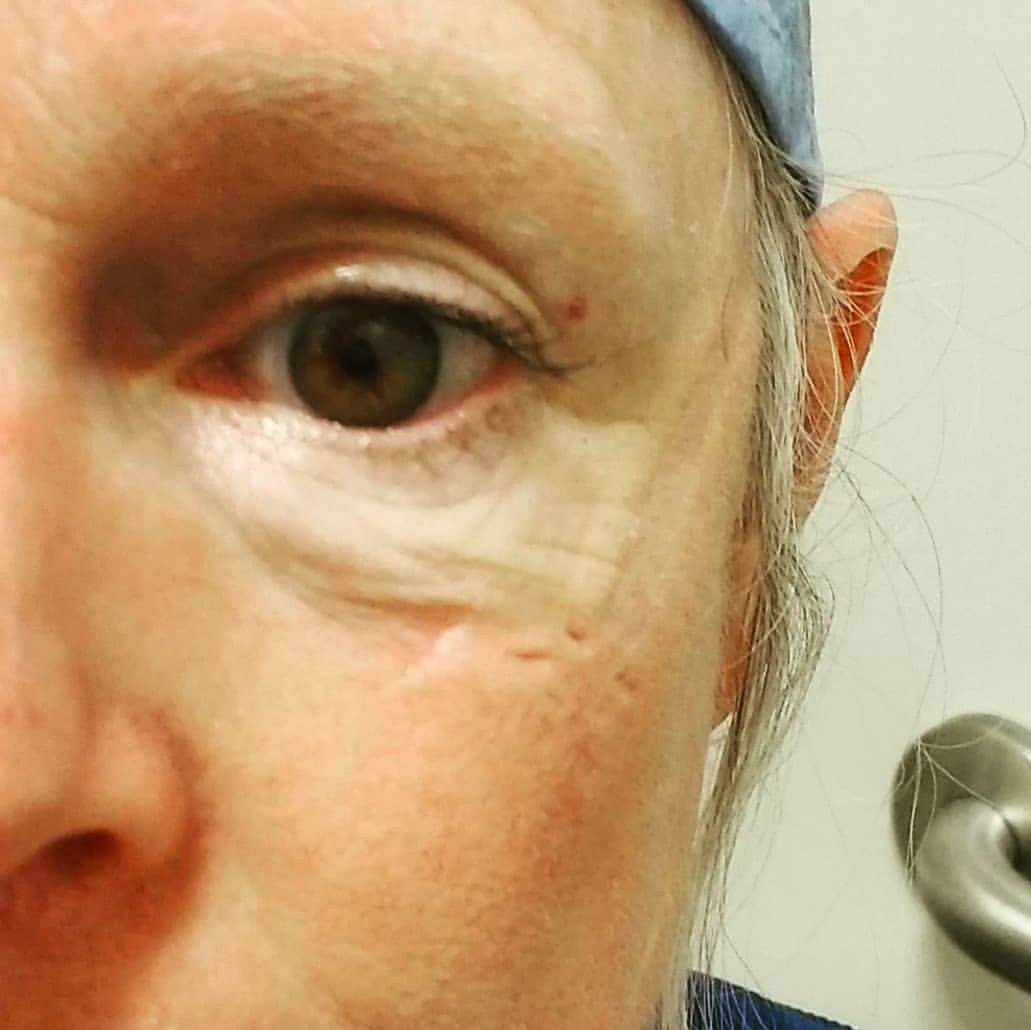
“Julie” has just finished her 12 ½-hour shift as an ER nurse in a Naples, Florida, hospital. When she gets to her house, she strips out of her scrubs outside, puts on a robe and immediately heads for the shower. This ritual is one of the many ways she attempts to protect her husband and visiting daughter from potential novel coronavirus exposure at home.
Julie clearly has grit and compassion after 35 years in the emergency room, including many on the frontlines at the start of the AIDS crisis when little was known about the risks associated with HIV. Today, amid the coronavirus/COVID-19 pandemic, she is experiencing new kinds of challenges, demonstrated by the strange marks left on her cheeks at the end of her shift.
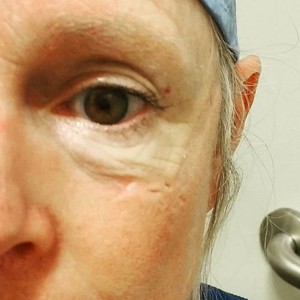
PPE masks that have been re-used or heated for disinfection purposes tend to develop faulty elastic bands. ER nurse “Julie” is shown here with staple imprints on her cheeks after wearing a stapled-on mask for her 12 ½-hour ER shift.
While we’ve all seen images over the past month of healthcare workers with all sorts of bruises and wounds from extended hours wearing personal protective equipment (PPE), these indentations are unfamiliar. But when asked about them, Julie’s response is matter-of-fact: They’re imprints of staples.
It turns out that many of the batches of masks her unit was “lucky” to receive are so old that the elastic bands often snap when worn. They’re also the wrong size for her face. A stapler has become a necessity for on-the-fly fixes of the masks they are re-using on up to 15 vulnerable patients per shift.
Sobering examples like these demonstrate that in the U.S., hospitals and the federal government were tragically unprepared for the breakdown of the PPE supply chain during this pandemic. Because of this, so many healthcare workers like Julie have had to make due—at great risk to themselves, their patients, and the greater communities they serve.
There is no glossing over these unacceptable conditions. But at Tides, we’ve been moved by the profound, lightning-fast collaborations created across sectors—often with our help—to fill the gaps in our healthcare system and meet medical needs during this painful moment in history through efforts, such as the Project N95 Fund.
Tides’ Partnership with the Project N95 Fund is Bridging Critical Gaps
Project N95 works with frontline organizations, governments and associations that are focused on procuring critical PPE and medical supplies, including ventilators. In fact, it recently became the official national clearinghouse of PPE. But before March nobody had heard of Project N95… because it didn’t yet exist.
In early March, word began to spread of PPE shortages—from respirator masks to gloves to face shields—in the U.S. due to the potential aerosolized nature of the novel coronavirus. “These sounded like stories from the Third World, but they were happening in major cities, in major hospitals in the U.S.,” says Nadav Ullman, a tech entrepreneur and investor with expertise in transportation and logistics.
Nadav, one of the co-founders of Project N95, says he started discussing this issue with others he knew who also had friends in hospitals that were going to run out of PPE supplies in just a matter of weeks.
These sounded like stories from the Third World, but they were happening in major cities, in major hospitals in the U.S.
With a mix of government, tech, healthcare, and supply chain backgrounds, this small group—including Andrew Stroup, Natasha Rishi-Bohra, Clare Pierce-Wrobel, David Yoon, and Jen Anderson—heard that nurses and doctors were asking kids to sew masks for them after school. Together, they did some digging and discovered manufacturing plants in China that had PPE supplies, but they didn’t know how to get them to the healthcare establishments in the U.S. There was supply somewhere, and definitely a demand, but they just weren’t connecting.
Nadav describes the PPE procurement process as “the Wild West,” including a growing black market and rampant price gouging. That’s why these volunteers decided to “throw up a website” to help their friends who were in need of a protective gear connect with reliable manufacturers in China. Project N95, named after the respirator mask of choice for COVID-19 healthcare workers, was quickly launched. The momentum that took hold was like something out of a movie.
Two days after the site went up, Project N95 founders were on the phone with Speaker of the House Nancy Pelosi’s office. Within the week, Mark Cuban—billionaire, entrepreneur, and Shark Tank investor—shared tweets touting their work. Around the same time, Andy Slavitt, founder of United States of Care and former Obama Administration healthcare head, started lending his vast knowledge and support.
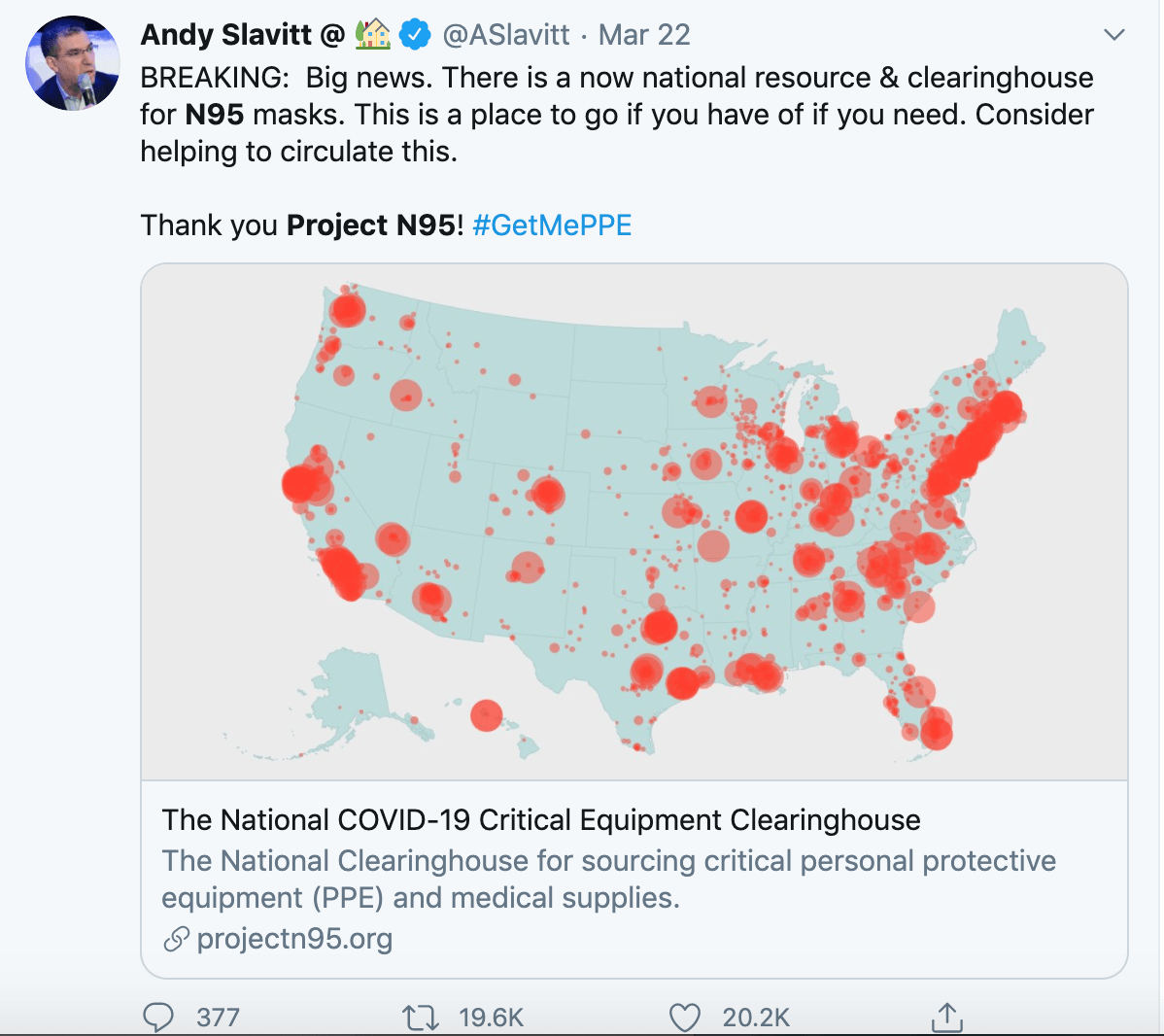
Tides Provides Philanthropic Expertise to Support Frontline Healthcare Workers
Project N95 was able to launch a full-scale organization in an incredibly short amount of time—thanks to Tides, which set up its philanthropic capacity within only a week. It also quickly assembled a team of 100-plus volunteers, many taking off time from their day jobs or in-between work. These volunteers came together from all over the world to serve the frontlines, conducting sourcing due diligence on suppliers and products so medical providers and hospitals could quickly make informed procurement decisions.
Project N95 was able to launch a full-scale organization in an incredibly short amount of time—thanks to Tides, which set up its philanthropic capacity within only a week.
Because it happened so fast, Project N95 wasn’t established as a 501(c)(3), and it was clear it would need expert guidance on the philanthropic front in addition to insight on equitable distribution of PPE to vulnerable and at-risk communities.
“We trusted Tides because they came recommended to us by our highly trusted mentors and advisors,” says Nadav, referring to those from United States of Care.
Tides already had all hands on deck to facilitate rapid philanthropic responses to this pandemic. “At Tides, we assessed the urgency of Project N95’s needs during this crisis and decided the best way we could serve this venture was to help optimize it for flexibility, efficiency and agility in moving resources to where they were needed most, and in the most effective way possible,” says Leena Barakat, director of Strategic Partnerships at Tides.
The Project N95 Fund, a fund at Tides Foundation, was quickly launched to support Project N95’s operations and its mission to facilitate the procurement of quality medical equipment for frontline workers.
By May 14th, Project N95 had facilitated 2,677 suppliers with submitting 6,495 products for vetting. Between May 15th and July 15th, Project N95 delivered 595,865 units of PPE to 76,062 healthcare and frontline workers. “The White House, FEMA and other healthcare institutions now depend on Project N95 for data related to medical equipment,” says Barakat. “They are filling in the knowledge gaps.”
The White House, FEMA and other healthcare institutions now depend on Project N95 for data related to medical equipment.
Project N95 also worked with Stop the Spread, one of Tides’ philanthropic partners. This private sector initiative has received commitments from 1,500 business leaders to share its resources and expertise in response to COVID-19. Its fund at Tides was established to support frontline healthcare workers and the development of the resources needed to stop the spread and treat those affected.
With collaborations like these, we’re hopeful that N95 masks and other critical PPE gear will eventually make it to our modern-day superheroes like Julie. Despite all the hardships she and her medical colleagues are facing, she still has faith. “We’ll get through this,” she says.
. . . . . . . . . . . . . . . . . . . . . . .
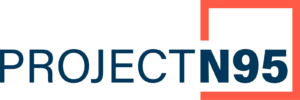
On May 14th, Project N95 reported that 287,467,926 units of critical equipment were needed in the next 30 days by 3,949 requesting organizations. As of July 15th, 3,458 suppliers had submitted 8,547 products to be sent to those in critical need. Project N95’s team of volunteers is working around the clock to review every submission.
→ Tides invites you to donate to The Project N95 Fund today to help healthcare and frontline workers of the COVID-19 crisis source the critical equipment and PPE they desperately need.
→ You can also support grassroots organizations that serve vulnerable communities across the U.S. by donating to the Tides Stronger Together COVID-19 Response Fund.

LGBT
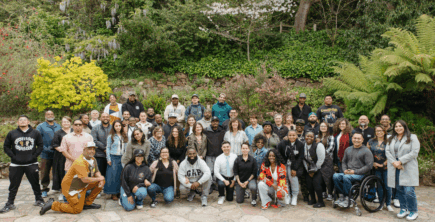
Corporate Partners

Philanthropy

Read the stories and hear the voices of social change leaders fighting for justice.